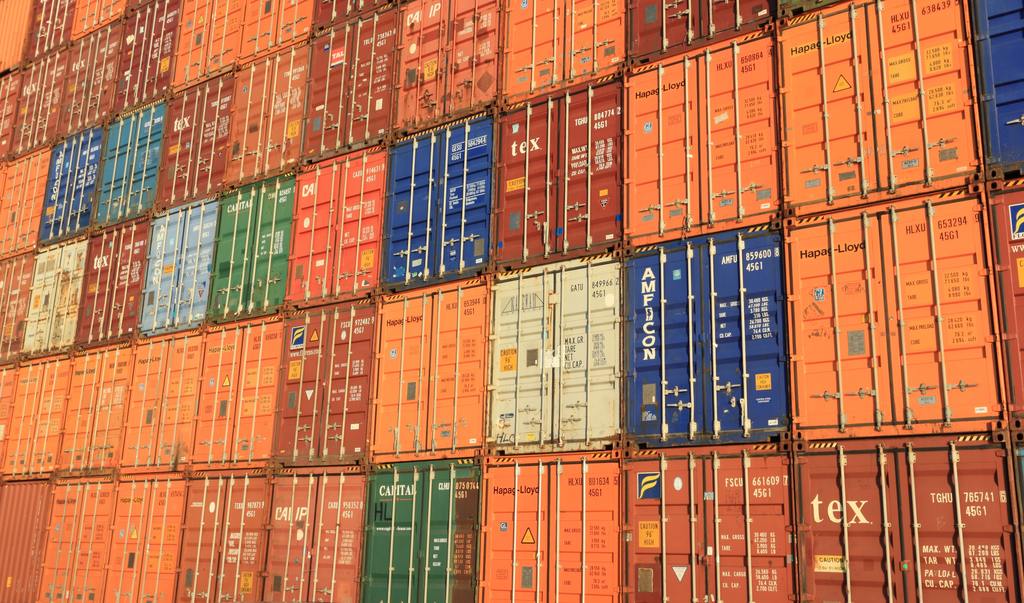| Home> | Industry Sector | >Distribution | >Erosion of major retailer market share could hike costs |
| Home> | Industry Sector | >Rail, ports & transport | >Erosion of major retailer market share could hike costs |
Erosion of major retailer market share could hike costs
24 August 2018
The growth of the discount and convenience sector is not only eroding major retailers’ market share, it could now come at a cost to suppliers, according to new research.

The study*, by leading supply chain and logistics consultancy, SCALA, found that traditional major retailers’ share of product volumes has declined in recent years - with volumes down nearly 5% since 2015.
The erosion is a result of the emerging growth of discount retailers - expected to see an increase of 49.8% to their value over the next five years, due to customer demands for affordable convenience.
Convenience stores are also expected to see a healthy growth in value (17.7% by 2022), as they leverage their appeal to younger shoppers and those looking for food-on-the-go.
In contrast, traditional supermarkets are only set to see a value increase of 5.9% over the next five years.
Dave Howorth, director at SCALA, said: “The retail landscape is changing – no longer is it dominated by the ‘big four’, as discount and convenience retailers have emerged from the shadows following changing consumer loyalties and preferences.
“Discount retailers, in particular, have seen monumental growth over the past decade, with chains such as Aldi and Lidl gaining more market share to challenge those at the top.
“While increased competition is positive for consumers, as it means they are likely to receive the best products and services possible, for the logistics sector, there are serious implications.
“Ultimately, more stores, growing networks and greater convenience comes at a cost to suppliers and the logistics businesses powering the supply chain.”
The UK Logistics Report found that major retailers are responding to the threat from the discounters by seeking benefits from consolidation, which again is impacting the supply chain sector.
Dave Howorth continued: “The major retailers have, for some time, been looking at what the discount retailers do well and have initiated processes to rationalise product ranges and simplify their businesses to better manage their costs.
“The recent Sainsbury’s / ASDA merger and the tie-up between Tesco and Carrefour highlights this innovative approach to making cost reductions, but the resulting impact to manufacturers could be detrimental.
“The impact of rationalisation on the logistics sector is two-fold. It may well help suppliers reduce logistics costs for supplying to major retailers, through larger loads and fewer delivery points. However, with retailers now requesting more bespoke products and pack sizes, the knock-on effect for manufacturers is added complexity, and therefore cost.
“This, alongside products increasingly becoming absent from retailers’ shelves, could mean the end for suppliers that become viewed as redundant in the not-too-distant future.”
For more information, please visit: www.scalagroup.co.uk/reports
*The UK Logistics Report is based on a benchmarking exercise that SCALA has carried out annually for the last 12 years. This version focuses on the Grocery and FMCG sector. Its findings and trends are based on data from the UK’s major manufacturers.
- Overwhelming number of businesses to reassess supply chain strategy
- Supply chain professionals believe 3PLs could do better
- Brexit rivalling customer pressure as supply chain challenge
- Blue chip firms among speakers confirmed for debate
- Brexit dominates SCALA debate
- No-deal Brexit means ‘five years of turmoil’
- Feed the Nation supply chain working group launches
- A strategic view
- Changing market dynamics drives soaring growth
- 3PLs should do more to drive supply chain developments
- Rail, Ports & Transport
- Boom time for carpets
- £5m forklift deal signed
- London Gateway leads ports rush
- Portcentric warehouse facility launched in Southampton
- Crane system facilitates green heating and cooling
- Keen on collaboration
- FTA welcomes key rail freight investment funding
- Pallet splitting the easy way
- Supply chain challenges to cause switch to multi-location distribution networks










/GRABOMATIC LOGO-tn.jpg)
















